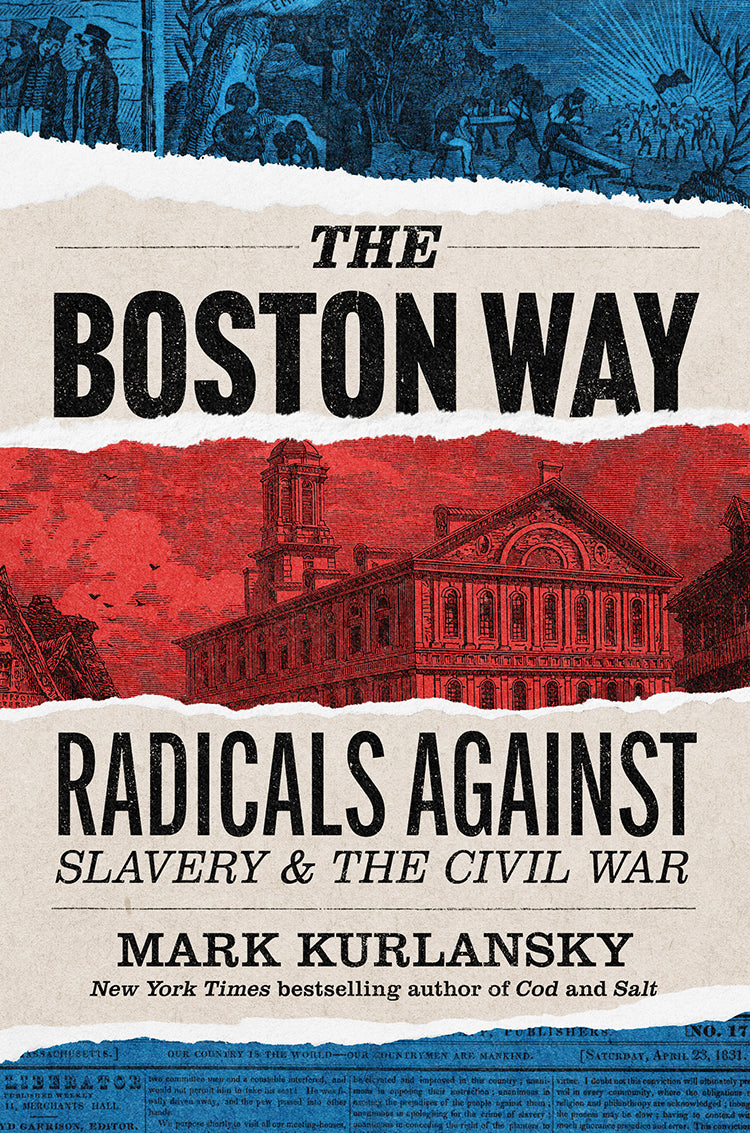
How do good people find the courage to resist and end the greatest evil in their country? An untold story of the Civil War Era: pacifists in Boston who led the fight to end slavery without violence and war.
Has there ever been good violence or a good war? The American Civil War is likely considered to be so since there seemed to be no alternative. Or was there? Before the war, Bostonian abolitionist William Lloyd Garrison correctly predicted that fighting would not bring about real freedom and justice. If emancipation came about through violence, he believed, it would take at least a century for Black people to get their rights. As we now know, it has taken even longer than that.
Here is the story of Garrison and other abolitionists, Black and white, male and female, who advocated a peaceful end to slavery and the start of human rights for Black people. The Boston Clique, as they were called, were victorious in persuading their fellow Bostonians to end Jim Crow laws on Massachusetts’ railroads. Persuasion was, these pacificists believed, the only means to lasting change.
In these pages, we find Frederick Douglass and lesser-known Black abolitionists, William Nell and Charles Remond. We meet leading feminists of the nineteenth century Lydia Maria Child, Margaret Fuller, Susan B. Anthony, and Elizabeth Cady Stanton. Additional key figures include Adin Balou, William Ladd, and Noah Worcester whose voices for nonviolence impacted Leo Tolstoy, Gandhi, and Dr. Martin Luther King.
Still, if it meant a faster end to the horrors of slavery, wasn’t violence the answer? In time, pacificist abolitionists such as Douglass and John Brown came to believe the entire system in the South needed to be overthrown and that could only happen through the shedding of blood. Time may now provide a different perspective.
While history has little memory of abolitionists, and even less for pacifists, nothing can be learned from that which is not remembered. What if the Civil War had never have been fought? Might we now live in a world of far greater justice and peace? What does this mean today as we still pursue “righteous” violence? This is the story of a road not taken.
Praise for The Boston Way
“Engrossing....An enlightening and entertaining portrait of a community that deserves to be better remembered and understood, and that embodied, within its limitations, the best kind of American idealism.”—Wall Street Journal
“Makes an excellent case for the enduring legacy of persuasion and nonviolence…. VERDICT: A fascinating account of the abolitionist movement, with the city of Boston as an excellent setting.” —Library Journal, starred review
“The Boston Way brings back the full complexity and dynamism of one of America's great protest movements. In the decades before the Civil War finally clarified things, a group of Boston reformers gathered around the overlapping causes of anti-slavery, peace, women's rights, and Transcendentalism. They were hardly united; being Bostonians, they disagreed with each other nearly as often as they did with the wider society around them. But their noisy advocacy made a difference, and awakened Americans from the moral indifference that permitted slavery to last as long as it did. With a deep understanding of the clique's web of interrelationships, The Boston Wayrestores the family feeling behind a great crusade for justice.the belief that overcoming racial slavery would depend, not on bloodshed, but on peaceful change.” —Ted Widmer, author of Lincoln on the Verge: Thirteen Days to Washington
“The causes of ending slavery and war alike were inextricable for an almost forgotten generation of America’s greatest activists. In his new book, filled with gripping scenes and unforgettable protagonists, Mark Kurlansky dramatizes the struggle before the Civil War to keep the two causes together. The best histories make the legacy of our past less obvious. It is a gift for our present that The Boston Way recovers the belief that overcoming racial slavery would depend, not on bloodshed, but on peaceful change.” —Samuel Moyn, author of Humane: How the United States Abandoned Peace and Reinvented War
“Mark Kurlansky’s marvelous new book rescues the Boston Clique from the condescension of history. Showing how William Lloyd Garrison and Lydia Maria Child – allied with assorted feminists, transcendentalists, and pacifists – pioneered nonviolent means of resistance to racism that anticipated the twentieth century civil rights movement, this timely, intelligent study, is a pleasure to read.” —David Brown, author of The First Populist: The Defiant Life of Andrew Jackson

